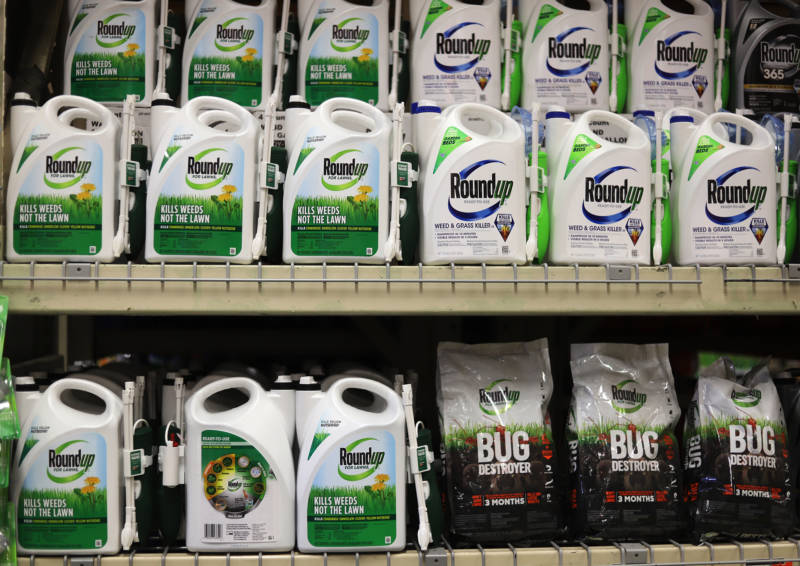‘This Is Going to Continue ‘
The Pilliods owned four properties on which they used Roundup. They applied the weedkiller once a week for most of the year for close to three decades.
“We wished that Monsanto had warned us ahead of time about the dangers, and that there was something on the front of their label saying ‘danger,’ Alberta Pilliod said at a press conference after the verdict. “They weren’t giving us any choice, because from their ads we felt that it was incredibly safe to use.”
The Pilliods’ attorney, Brent Wisner, said the process of holding the company accountable was just beginning. “This is going to continue until Monsanto and now Bayer takes responsibility for its product. People are dying. They have the resources to pay for this case and the tens of thousands of people out there who have cancer. They just need the will to do it.”
In a statement , Bayer said it was “disappointed with the jury’s decision,” noting that it conflicts with the U.S. Environmental Protection Agency’s position that Roundup is safe.
“We have great sympathy for Mr. and Mrs. Pilliod,” Bayer said, “but the evidence in this case was clear that both have long histories of illnesses known to be substantial risk factors for non-Hodgkin’s lymphoma (NHL), most NHL has no known cause, and there is not reliable scientific evidence to conclude that glyphosate-based herbicides were the ‘but for’ cause of their illnesses as the jury was required to find in this case.”
The International Agency for Research on Cancer, an arm of the World Health Organization, concluded in 2015 that glyphosate is probably carcinogenic for humans. Since 2017, the state of California has considered glyphosate a known carcinogen.
Monsanto and Bayer face tens of thousands of more cases making similar claims about Roundup’s toxicity. In April, U.S. District Court Judge Vince Chhabria ordered the lead lawyers for the plaintiffs’ group and attorneys for Monsanto to take part in confidential mediation, delaying a trial that was set to move forward this month.
The often-tense Pilliod trial drew packed courtrooms and celebrity attendees, including director Oliver Stone, singer Neil Young and actress Darryl Hannah, who tweeted from the courtroom.
As in earlier cases, jurors in the Pilliod case heard an array of scientific experts, who testified about animal and tissue lab studies as well as epidemiological studies, in which scientists examine how, when and why diseases occur.
A Huge Award
One legal expert, at least, said Monsanto will not end up paying the $2 billion.
“There is zero chance it will stand,” said University of California, Hastings School of Law professor David Levine. He said the ratio between the $2 billion in punitive damages and $55 million in compensatory damages is too high. He said judges rarely allow punitive damages to exceed four times actual damages awarded.
The California Supreme Court ruled in 2016 that any punitive damages exceeding 10 times the compensatory damages are likely unconstitutionally high. The court didn’t propose a ratio it felt correct, but said punitive damages should almost never exceed nine times actual damages.
The punitive damages awarded Monday are 36 times the actual damages.
The lawsuits have battered Bayer’s stock since it purchased Monsanto for $63 billion last year and Bayer’s top managers are facing shareholder discontent.
Chairman Werner Wenning told shareholders at Bayer’s annual general meeting in Bonn last month that company leaders “very much regret” falls in its share price. At the same time, CEO Werner Baumann insisted that “the acquisition of Monsanto was and remains the right move for Bayer.”
Bayer’s stock price closed Monday at $15.91 a share, down 45 cents or 2.76 percent per share, in trading on the New York Stock Exchange. The verdict was announced after the trading session closed.
Bayer’s share price has lost half its value since it reached s 52-week high of $32.80 a share.
Paul Elias of the Associated Press contributed to this report.

